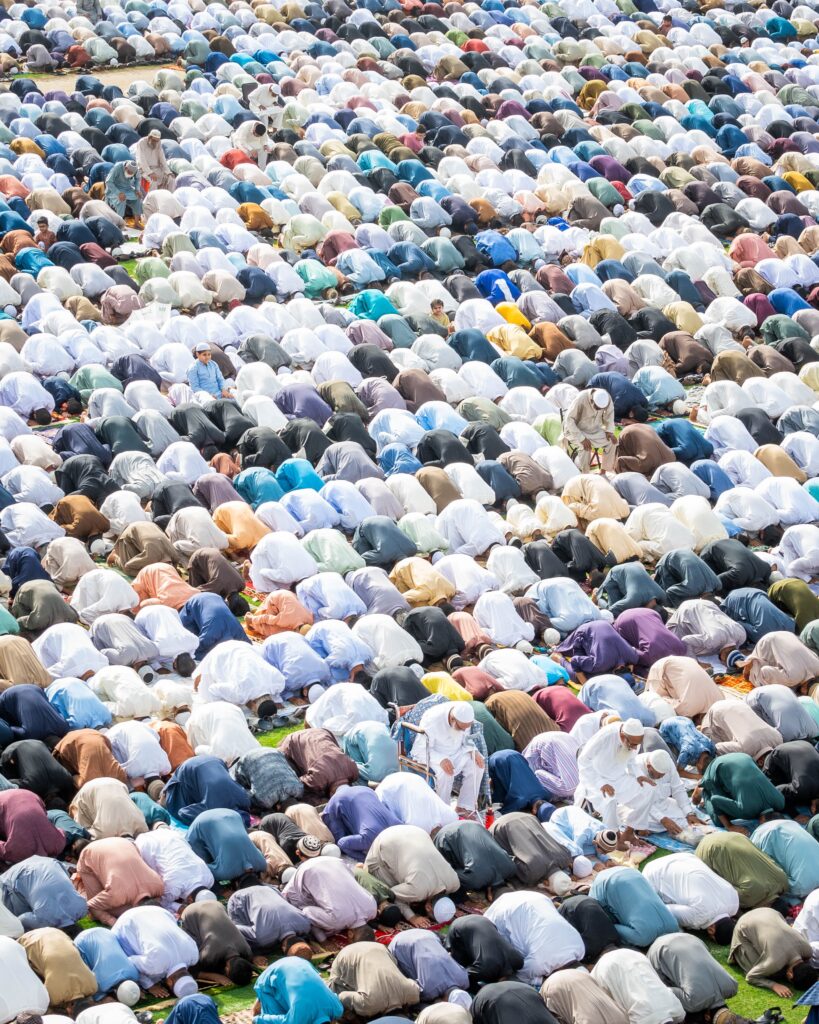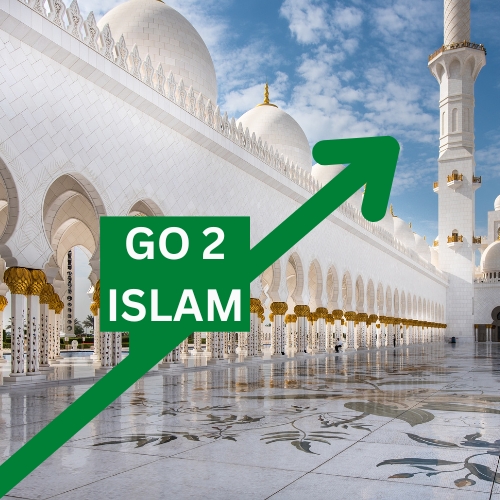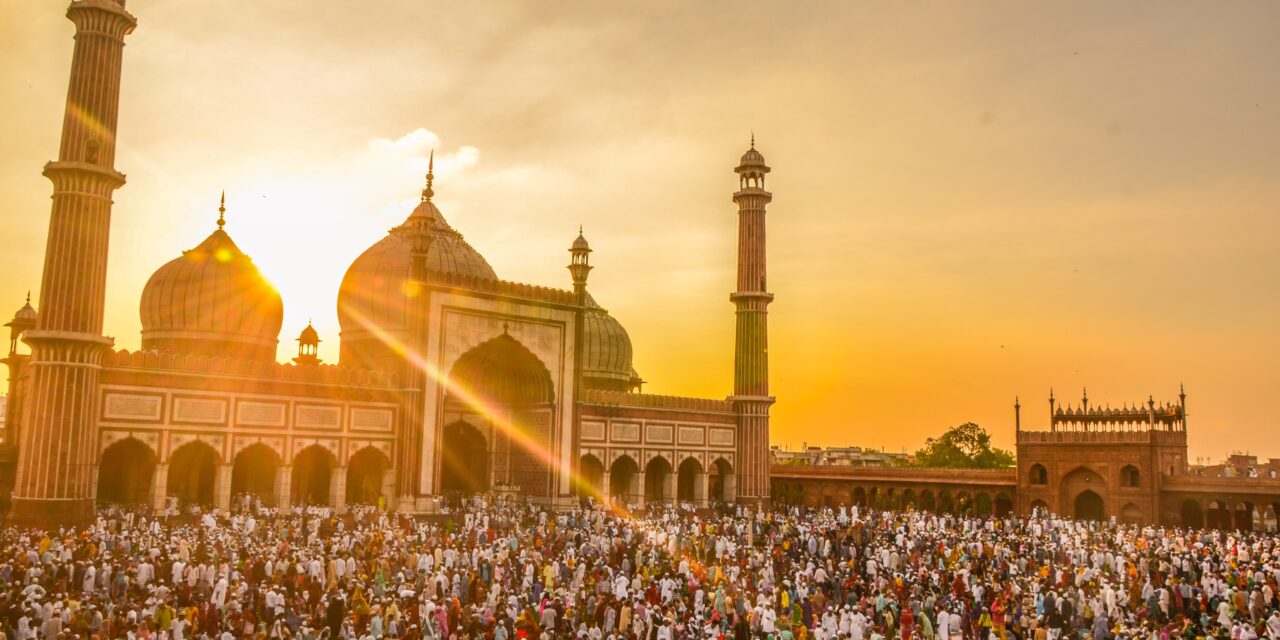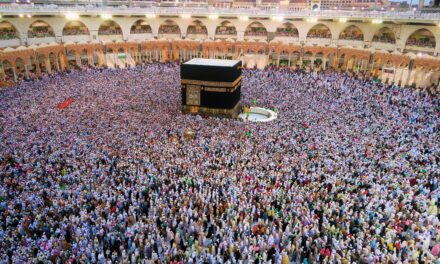Growth Of Islam
Islam is one of the fastest growing religions in Europe, and over the last few decades, there has been a significant increase in the number of people interested in Islam. According to some estimates, the number of Muslims in Europe is projected to grow from 44 million in 2016 to 58 million by 2050.
The number of people interested in Islam varies from country to country in Europe. In some countries, such as France and Germany, the number of Muslims is already significant and is projected to continue to grow. In France, for example, Muslims make up around 8% of the population, and this number is projected to increase to 15% by 2050. Similarly, in Germany, Muslims make up around 6% of the population, and this number is projected to increase to 20% by 2050.
In other European countries, such as the United Kingdom and Italy, the number of Muslims is also projected to increase, but the percentage of the population will remain relatively low. In the United Kingdom, Muslims make up around 5% of the population, and this number is projected to increase to 8% by 2050. In Italy, Muslims make up around 3% of the population, and this number is projected to increase to 7% by 2050.
The interest in Islam is also increasing among people who are not originally from Muslim-majority countries. A significant number of people in Europe are converting to Islam every year, especially women who are coming from Christian backgrounds. According to some estimates, the number of converts to Islam in Europe ranges from tens of thousands to several hundred thousand per year.
The interest in Islam is also visible in the increasing number of people who are visiting Mosques, reading Islamic literature and attending Islamic events. The number of Mosques in Europe has been increasing in recent years, and the number of books on Islam sold in Europe has also been on the rise.
Another factor that is driving the interest in Islam in Europe is the increasing number of immigrants from Muslim-majority countries. Many of these immigrants are highly educated, and they are contributing to the growth of Islamic culture and knowledge in Europe.
In conclusion, the number of people interested in Islam in Europe is increasing, and it is projected to continue to grow in the future. The interest in Islam varies from country to country, with some countries having a higher percentage of Muslims than others. The increase in interest in Islam is also visible in the increasing number of people visiting Mosques, reading Islamic literature, attending Islamic events and also the number of converts. The increasing number of immigrants from Muslim-majority countries is also contributing to the growth of Islamic culture and knowledge in Europe.

Why Are People Attracted To Islam?
There are a variety of reasons why people may become interested in Islam. Some people may be drawn to the religion because of its spiritual and moral teachings, which offer a sense of guidance and purpose in life. The emphasis on the oneness of God, the importance of compassion and charity, and the call to lead a righteous and ethical life may appeal to people who are searching for a deeper understanding of themselves and the world around them.
Others may be attracted to the sense of community and belonging that Islam provides. The regular practices of prayer, fasting, and charity create a sense of shared purpose and connection among Muslims. Additionally, the strong emphasis on family and community values within the religion may be appealing to people who are looking for a sense of support and belonging.
Islam also offers a sense of cultural identity for many people. Its rich history, literature, art, and architecture can be very appealing for people who are looking for a way to connect with their heritage.
For some people, the current political and social climate may also be a factor in their interest in Islam. The increasing visibility of Muslims in the media, and the ongoing global discussions about Islam and its relationship to politics and society, may make the religion more relevant and accessible to them.
Islam’s message of equality, justice, and peace also may be an attractive feature for many people. Islam offers a message of unity and fraternity, where all human beings are equal and there is no superiority of one race over the other.
Lastly, it’s worth mentioning that some people may be interested in Islam due to the personal encounters and interactions they had with Muslims. Many people who convert to Islam do so after having positive experiences with Muslims and being impressed by the kindness and generosity they encountered.
In conclusion, people may become interested in Islam for a variety of reasons, including its spiritual and moral teachings, sense of community, cultural identity, its relevance in current political and social climate and also due to personal encounters and interactions with Muslims.
Who Are The Most Reverts Men Or Woman?
The ratio of men to women who show interest in Islam varies depending on the location and context. However, generally speaking, the majority of converts to Islam are women. This trend is particularly pronounced in Europe, where studies have shown that the majority of converts to Islam are women, and they come mostly from Christian backgrounds.
Some estimates suggest that the ratio of men to women converts in Europe is around 1:3. This means that for every three women who convert to Islam, there is one man. This trend is also observed in other non-muslim majority countries.
There are several reasons for this trend. Some experts suggest that women may be more likely to convert to Islam because they are looking for a sense of spiritual fulfillment and moral guidance that they may not find in their current religion. Additionally, some women may be attracted to the strong emphasis on family and community values within Islam, and may be drawn to the sense of support and belonging that the religion provides.
Also, the patriarchal nature of some non-muslim societies, where women may be marginalized, may also play a role in this trend, as some women may be looking for a religion that empowers them and grants them equal rights.
It’s worth noting that this trend is not exclusive to Europe, and similar patterns are observed in other non-Muslim majority countries. However, it’s important to note that these numbers are just estimates and could vary depending on the location, context and methodology used to gather data.
In summary, generally speaking, the majority of converts to Islam are women, and the ratio of men to women converts is estimated to be around 1:3 in Europe and similar patterns are observed in other non-muslim majority countries. The reasons for this trend could be various, such as looking for spiritual fulfillment, moral guidance, sense of belonging, and empowerment.

Will Islam Become The Largest Religion?
Islam is already one of the world’s largest religions, with over 1.8 billion followers worldwide. According to some projections, the number of Muslims is projected to grow in the future, particularly in countries with high birth rates such as India and Nigeria, and in some countries in Europe, due to the increasing number of immigrants from Muslim-majority countries. However, it is difficult to predict with certainty if and when Islam will become the largest religion on the planet.
There are various factors that could influence the growth of Islam in the future, such as the population growth, migration, conversion, and retention rates. Some demographers predict that Islam will surpass Christianity as the world’s largest religion by the end of the century. However, it’s important to note that these predictions are based on current trends and assumptions, and can be affected by a variety of factors such as changes in birth rate, migration patterns, religious conversion and retention.
It’s also worth mentioning that religion is a complex and multifaceted phenomenon that is influenced by a variety of factors such as culture, politics, economics, and societal changes, so it’s hard to predict with certainty the future of any particular religion.
In conclusion, Islam is already one of the world’s largest religions, and there are projections that the number of Muslims will continue to grow in the future, but it’s difficult to predict with certainty if and when Islam will become the largest religion on the planet as it depends on various factors and assumptions, and it’s important to consider that religion is a complex and multifaceted phenomenon that is influenced by a variety of factors.
Brief Introduction Of The Holy Quran
The Holy Quran is the central religious text of Islam, believed by Muslims to be the word of God as revealed to the Prophet Muhammad. The Quran contains 114 chapters (surahs) and is divided into verses (ayahs). It covers a wide range of topics including theology, morality, and law, and is considered to be the ultimate source of guidance and authority for Muslims. The Quran is written in classical Arabic and is widely considered as one of the greatest works of Arabic literature. Muslims believe that the Quran is the literal word of God, and it is recited, studied, and memorized by millions of Muslims all over the world. It’s believed to be a sacred book that offers guidance, inspiration and a source of wisdom for Muslims.




